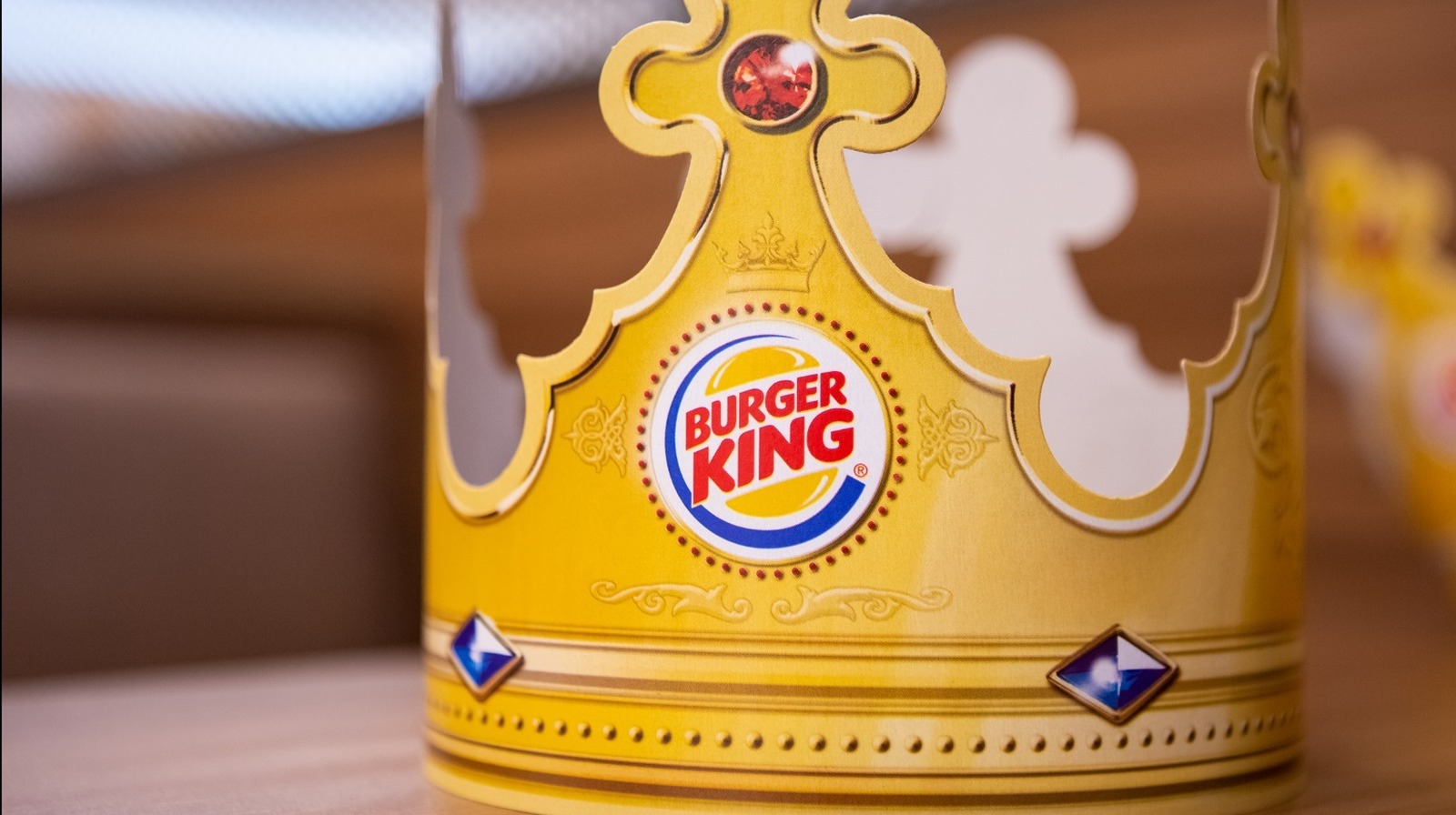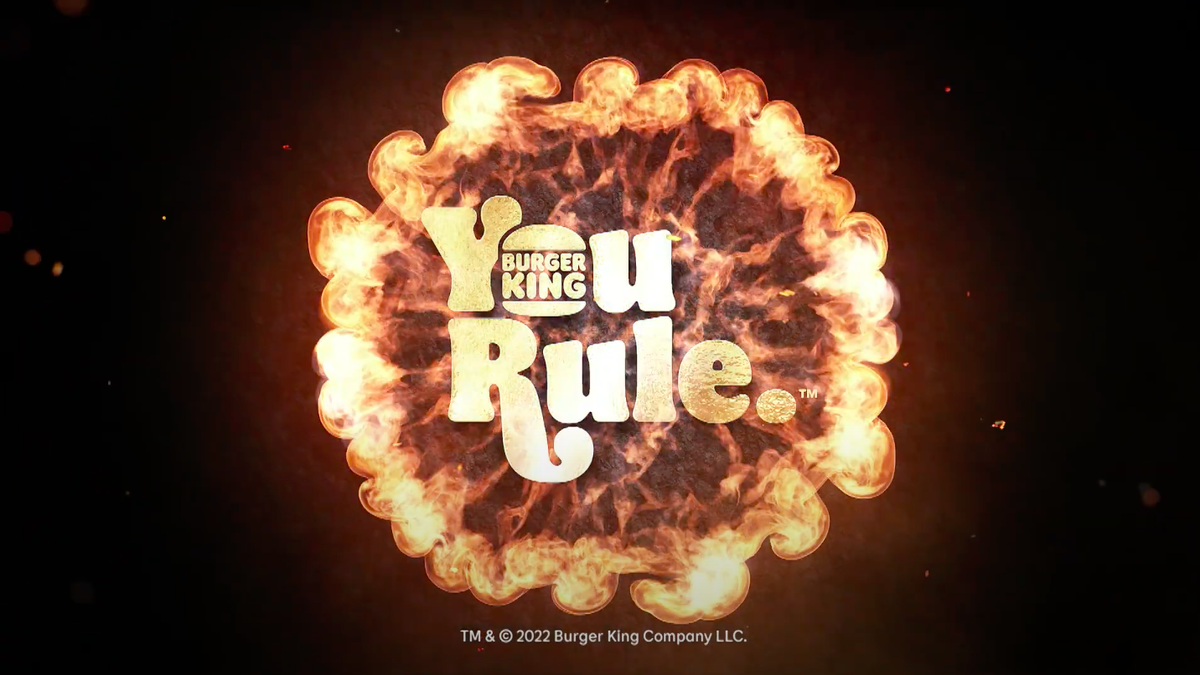Reason For Burger King's Closure: The Untold Story Behind The Fast Food Giant's Challenges
Let's talk about something that's been buzzing around the fast-food world lately: Burger King's closure of some locations. Yeah, you heard that right, folks. Burger King, one of the biggest names in the burger game, has been shutting down stores left and right. But why? Stick with me, because we’re diving deep into this juicy story.
It’s not just about flipping burgers anymore. The fast-food industry is evolving faster than ever, and Burger King’s closure of certain branches is a sign of bigger changes happening in the market. From shifting consumer preferences to tough competition, there’s a lot more going on behind the scenes than meets the eye.
In this article, we’ll break down the reasons why Burger King’s closure trend is happening, what it means for the brand, and how it affects the fast-food landscape as a whole. So, grab your favorite drink and let’s get into it!
Table of Contents
- Key Reasons for Burger King's Closure
- Market Trends Impacting Burger King
- Changing Consumer Preferences
- Financial Performance and Challenges
- Intense Competition in the Fast-Food Industry
- Corporate Decisions and Strategic Moves
- Analysis of Store Locations
- Impact on Franchise Owners
- The Future Outlook for Burger King
- Conclusion: What’s Next for Burger King?
Key Reasons for Burger King's Closure
Alright, let’s cut straight to the chase. Burger King’s closure isn’t random—it’s a result of several interconnected factors that have been brewing for a while now. First off, there’s the issue of profitability. Some locations just aren’t pulling in enough cash to stay afloat. You might be thinking, “But Burger King’s famous, right? How can they fail?” Well, turns out, not all branches are created equal.
Another big reason is market saturation. Yeah, there are just too many Burger Kings in some areas. Think about it—how many times have you driven down a road and seen three BKs within a mile of each other? That’s a recipe for disaster. Too much competition within the same brand can lead to cannibalization, where one store steals customers from another.
Shifting Demographics
Then there’s the shift in demographics. Some neighborhoods that once supported Burger King stores have changed over time. People move out, businesses close down, and suddenly, the customer base just isn’t there anymore. It’s like trying to sell ice cream in Antarctica—doesn’t make sense, right?
Market Trends Impacting Burger King
Now, let’s zoom out and look at the bigger picture. The fast-food industry is going through massive changes, and Burger King’s closure is a reflection of those shifts. One of the biggest trends right now is the rise of healthier eating habits. People are becoming more conscious about what they put in their bodies, and let’s be honest, a Whopper isn’t exactly a health food.
But wait, there’s more. Technology is also playing a huge role. Online ordering, delivery services, and even AI-driven marketing are changing the game. If Burger King can’t keep up with these advancements, they risk losing ground to competitors who are innovating faster.
Global Economic Factors
Don’t forget about the global economy. Rising costs of ingredients, labor, and rent can put a serious dent in a restaurant’s bottom line. And with inflation hitting record highs in recent years, it’s no surprise that some Burger King locations are struggling to stay open.
Changing Consumer Preferences
Let’s talk about the people who actually eat at Burger King—the consumers. Their preferences are evolving faster than ever, and Burger King has to adapt or risk being left behind. For starters, plant-based options are becoming increasingly popular. Brands like Beyond Meat and Impossible Foods are partnering with fast-food giants to offer veggie burgers, and Burger King has been slow to jump on that bandwagon.
Another trend is convenience. People want their food fast, and they want it delivered straight to their door. Apps like UberEats and DoorDash have changed the way we order food, and Burger King needs to make sure they’re offering a seamless experience for their customers.
Customer Experience Matters
And let’s not forget about the overall customer experience. Cleanliness, friendly staff, and quick service are all important factors that can make or break a visit to Burger King. If a location isn’t meeting these expectations, chances are it won’t last long.
Financial Performance and Challenges
When it comes down to it, the numbers don’t lie. Burger King’s financial performance has been under scrutiny for a while now. Some locations simply aren’t bringing in enough revenue to justify staying open. This could be due to a variety of factors, including poor management, outdated equipment, or ineffective marketing strategies.
Additionally, the cost of maintaining a restaurant can be astronomical. Rent, utilities, wages, and food costs all add up, and if a store isn’t generating enough sales, it’s only a matter of time before it closes its doors. It’s like running a marathon—if you don’t have enough energy to keep going, you’re gonna crash.
Investor Pressure
Investors are also putting pressure on Burger King to improve their financial performance. They want to see growth, profitability, and innovation. If Burger King can’t deliver on these fronts, they risk losing the support of their financial backers, which could lead to even more closures.
Intense Competition in the Fast-Food Industry
Let’s face it, Burger King isn’t the only game in town. McDonald’s, Wendy’s, KFC, and a host of other fast-food chains are all vying for the same customers. The competition is fierce, and Burger King has to work extra hard to stand out from the crowd.
Innovation is key here. New menu items, limited-time offers, and creative marketing campaigns can help Burger King attract more customers. But if they fall behind, they risk losing market share to their competitors. It’s a dog-eat-dog world out there, folks.
Branding and Identity
Another aspect of competition is branding. Burger King needs to have a strong, recognizable identity that resonates with consumers. If their brand becomes diluted or confused with others, it can be hard to recover. Think about it—when you see a Burger King sign, what comes to mind? If the answer isn’t clear, they’ve got some work to do.
Corporate Decisions and Strategic Moves
At the end of the day, corporate decisions play a huge role in Burger King’s closure strategy. Executives at the top are constantly analyzing data, evaluating performance, and making tough calls about which locations to keep and which to close. It’s not an easy job, but it’s necessary for the long-term success of the brand.
Some of these decisions might involve consolidating resources, investing in technology, or expanding into new markets. It’s all about finding the right balance between growth and efficiency. And let’s not forget about mergers and acquisitions—Burger King has been involved in several deals over the years that have impacted their operations.
Franchise Model
One thing to keep in mind is that many Burger King locations are owned by franchisees, not the company itself. This means that corporate decisions can have a significant impact on these small business owners. If a franchisee is struggling to make ends meet, they might decide to close their store rather than continue losing money.
Analysis of Store Locations
Now let’s talk about the locations themselves. Some Burger King stores are in prime spots, with tons of foot traffic and easy access. Others, not so much. Factors like proximity to highways, shopping centers, and residential areas can all affect a store’s success.
Data analytics plays a big role here. Companies use sophisticated software to analyze customer behavior, sales trends, and demographic information to determine which locations are worth keeping. If a store isn’t performing well, it might be time to cut bait and focus resources elsewhere.
Rural vs. Urban Locations
There’s also a difference between rural and urban locations. Urban stores might have higher foot traffic, but they also face stiffer competition and higher operating costs. Rural stores, on the other hand, might have less competition, but they also have a smaller customer base. It’s a delicate balancing act.
Impact on Franchise Owners
Franchise owners are the ones who feel the brunt of Burger King’s closure decisions. These are small business owners who have invested their time, money, and energy into running their stores. When a location closes, it can be devastating for them and their employees.
But it’s not all bad news. Some franchisees might see closure as an opportunity to pivot and try something new. Maybe they’ll open a different type of restaurant or explore a new business venture altogether. It’s all about adapting to change and finding new ways to succeed.
Support for Franchisees
Burger King does offer support for franchisees who are struggling. This can include training programs, financial assistance, and access to resources that can help them improve their operations. But at the end of the day, the decision to close a store is often out of their hands.
The Future Outlook for Burger King
So, what’s the future hold for Burger King? Well, it’s hard to say for sure, but one thing is certain—they’re going to have to keep innovating if they want to stay relevant. This means embracing technology, offering new menu items, and finding ways to connect with their customers on a deeper level.
Expansion into new markets is also on the horizon. Burger King has been eyeing opportunities in Asia, Africa, and other regions where fast food is still relatively new. By tapping into these emerging markets, they can offset some of the losses they’ve experienced in more saturated areas.
Sustainability and Responsibility
Finally, there’s the issue of sustainability and corporate responsibility. Consumers are increasingly demanding that companies take a stand on social and environmental issues. Burger King will need to show that they’re committed to making a positive impact if they want to win over the hearts and minds of their customers.
Conclusion: What’s Next for Burger King?
Alright, folks, that’s the scoop on Burger King’s closure trend. As we’ve seen, there are a lot of factors at play here, from financial performance to market trends to corporate decisions. But one thing is clear—Burger King isn’t going anywhere anytime soon. They’re a powerhouse in the fast-food industry, and they’ll continue to evolve and adapt to meet the changing needs of their customers.
So, what can you do? If you’re a fan of Burger King, keep supporting them by visiting your local store and sharing your experiences online. And if you’re a franchisee or investor, stay informed about the latest developments and trends in the industry. Together, we can help ensure that Burger King remains a beloved part of the fast-food landscape for years to come.
Thanks for reading, and don’t forget to leave a comment or share this article with your friends. Let’s keep the conversation going!


